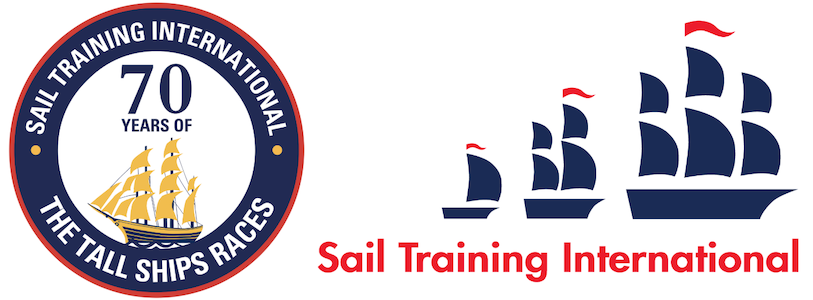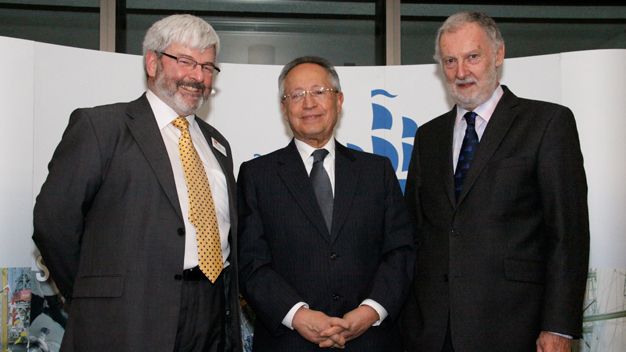IMO Secretary General commends work of Sail Training International
International Maritime Organization Secretary General Efthimios Mitropoulos commended the work of Sail Training International at a reception held last night at IMO Headquarters in London. He noted particularly the contribution of sail training to the development of maritime and personal skills in young people, and the potential of sail training to promote careers at sea in the shipping industry.
The reception, hosted jointly by Sail Training International and the UK Maritime and Coastguard Agency, was attended by flag state and sail training representatives from 20 countries, Naval Attaches, and representatives of international maritime transport industry organisations.
This year has been designated ‘Year of the Seafarer’ by the IMO, and Secretary General Mitropoulos said modern society owed a huge debt to the maritime transport industry and the seafaring profession. äóìShipping is a genuine career choice for young people,äó he said. äóìLand-based educational establishments have a vital part to play in this äó_ but the role of sail training should not be underestimated.äó He said that sail training produced äóìyoung people that the shipping industry needs to attract: self-motivated, self-starting, team players, capable of thinking for themselves and of following instructions when necessary; people of high caliber who can cope with the privations of long periods spent away from home and with the huge responsibilities that go with the territory of operating modern ships.äó
Secretary General Mitropoulos, Guest of Honour at the reception, was introduced by Peter Cardy, Chief Executive of the UK Maritime and Coastguard Agency. He said: äóìSail training has the capacity to thrill and delight sailors and landsmen alike, to draw in more good people to the vocation of seafaring and to redress the balance of public understanding of the industry in this new Age of Sailäó. He talked about the different approaches to sail training and sail training vessels adopted national regulators and pleaded for greater consistency. äóìI do not believe that more international regulation is required at this stage,äó he said. äóìBut better international understanding and more common practices between maritime administrations would be helpful.äó
Nigel Rowe, President and Chairman of Sail Training International, said safety and good seamanship are at the heart of what Sail Training International does, and of the practices on board all bona fide sail training vessels. Recognising the critical future shortage of sea-going personnel, identified in the ‘Go to Sea’ paper by the IMO, ILO and others, he said sail training and events for sail training Tall Ships could play a far wider and more effective role in both recruiting and training young people for a career at sea.
Efthimios Mitropoulos presentation.
Peter Cardy presentation will follow.


